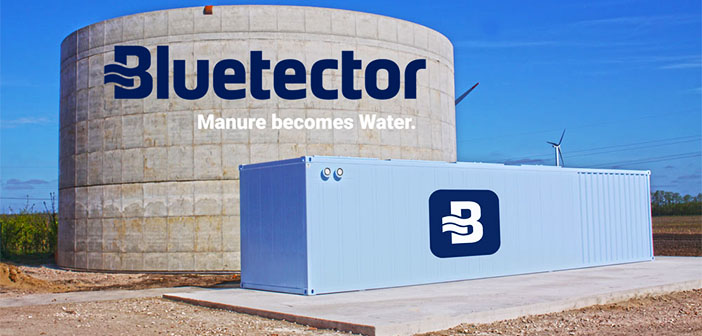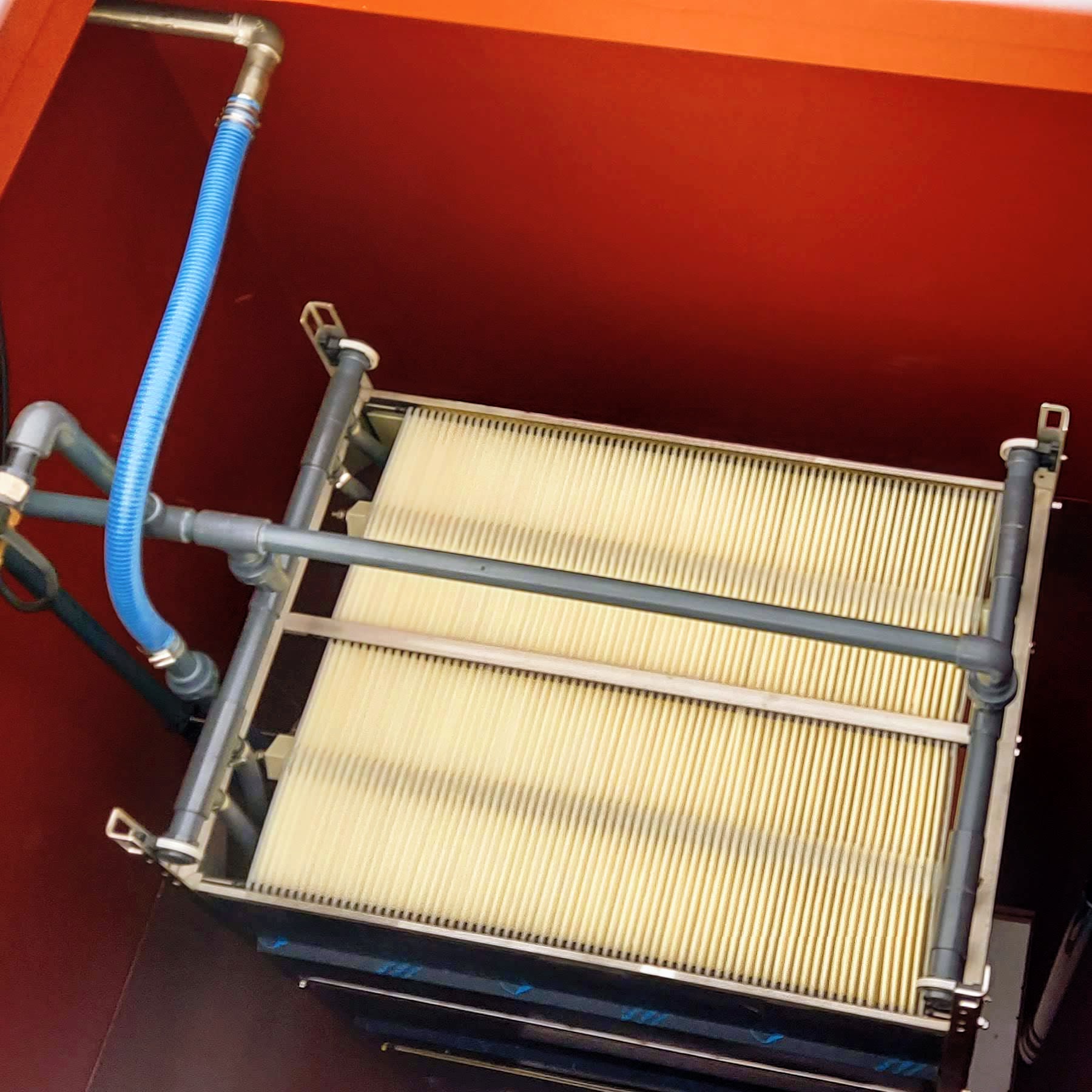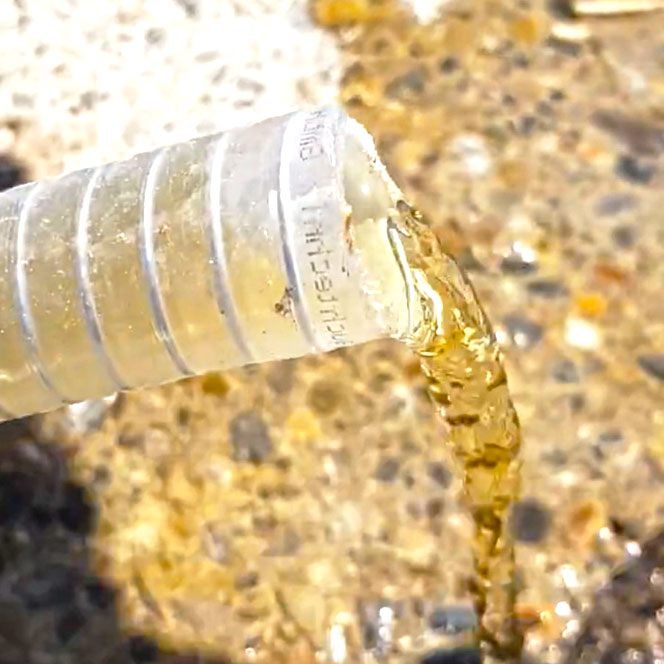Radical, new, low-cost technology from Swiss agtech company Bluetector could help solve some of the most serious environmental problems in agriculture and enable farmers to greatly reduce the costs of their livestock manure management.
The Lucerne-based company has successfully commissioned its first, compact, container-based Bluebox plant, which can treat up to 60 tons of pig manure per day, converting it into water on a purely biological basis. Each Bluebox plant ensures up to 350,000 gallons (1,300m³) of treated water can be applied to a single hectare.
[Image Source: bluetector.com]
In limited quantities, manure is a valuable fertiliser. However, there is now so much manure that it has become a serious environmental and health problem worldwide, according to the company. It says its plants combine anaerobic and aerobic methods from traditional wastewater treatment with bioaugmentation and targeted anammox processes to achieve an almost complete nitrification and denitrification in the treatment of manure and biogas digestate, without the need of adding any expensive chemicals or carbon sources to maintain the biological processes. The liquid nitrogen contained in the manure is converted into harmless atmospheric nitrogen. The effluent water contains only traces of nitrogen and phosphorus and is therefore ideal for irrigation. Most of the phosphorus remains in the solids as a valuable fertiliser.
Bluetector argues that current, commercially available biological processes for manure treatment only feature degradation rates in the nitrogen content of just 80%, and may only be used to apply around 26,000 gallons (100m³) of effluent per hectare. It claims its Bluebox plant achieves a considerably higher quantity, with up to 350,000 gallons (1,300m³) of effluent per hectare able to be deployed. As a result, it says there is no more need for the expensive transportation of excess manure over long distances, or even costly and environmentally unsafe manure storage, as its technology transforms unwanted manure into valuable irrigation water – an increasingly scarce and precious resource.
Where there are large local manure surpluses, Bluetector’s systems for manure treatment can support the natural nitrogen cycle and convert excess liquid nitrogen into atmospheric nitrogen. This protects the soil and groundwater, while avoiding expensive and environmentally harmful manure transports.
Purely biological functioning keeps costs low
Bluetector offers turnkey plants for the treatment of 100 tons of manure per day from as little as US$470,000. Due to purely biological functionality, the operating costs of Bluetector’s plants are low, the company claims, citing power consumption of less than 15kWh per ton of hog manure. A livestock farm with a daily manure quantity of 60 tons saves more than US$200,000 per year on manure transports and handling costs. Depending on the quantity of manure, a Bluetector system usually pays for itself within one to three years. The more manure is generated, the faster a Bluetector plant will pay for itself.
“The commissioning of our first commercial manure treatment plant in Germany is an important milestone for us,” said David Din, founder and CEO of Bluetector. “Our BlueBox enables livestock farms and concentrated animal feeding operations (CAFOs) to easily convert their manure into water using our low-cost bioreactor without the need for expensive and maintenance-intensive processes such as evaporation or reverse osmosis. We are now looking for partners to bring our ground-breaking and low-cost manure treatment technology to the US,” he continued. “We want to build our containerised system in the US and grow a nationwide maintenance infrastructure with our partners.”





